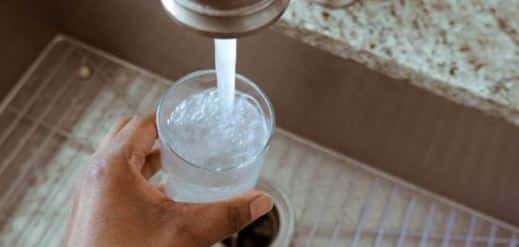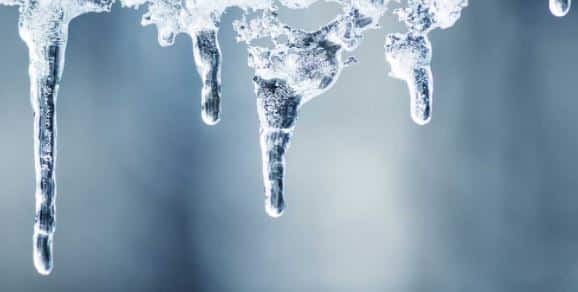Have you noticed white flakes floating in glass water filled from the tap? Next time you fill a glass of water, pay attention. Do you know what these floating white scales in water are?
Mainly the white flakes come from two sources. First, it can be from the water heater’s dip tubes that are defective or old. As a result, the scales disintegrate and find their way into the water pipes that come out through the line. Second, it can be due to specific pollutants or organic deposits in your water supply.
Here Are Some Common Reasons For White Flakes In Your Tap Water
Timescales

The most common reason can be the hard water supply in your locality. The water supply is hard if you see limescale deposits in your tubs, sinks, or faucets. The minute calcium sediments are seen in the water wherever there is a hard water supply.
Pollution

Heavy rains can wash away chemicals like pesticides, agricultural wastes, and residue of broken pipes. This water either seeps into groundwater or into the sumps that supply water to our homes. However, this may not be a permanent problem and is only evident during rainy seasons.
New Water Source

If water is from a new river or a new water reservoir, there is a change in water quality. It may also be due to lead or other chemicals that find their way into streams. In these conditions, the water is not fit for drinking, and it is advisable to get a filtration plant installed.
In many cases, a change in water source affects water quality. For example, the new water source can affect water taste, color, odor, and purity.
Air

In some cases, the air is also a reason. When extra air is trapped or moves through the water, it gives a milky white appearance. It is common in places where water is forced with excess pressure, especially in hilly areas.
Freezing

Freezing causes dissolved minerals to separate from water. These small precipitates turn into solids and mix with supply water. The process is in places where there is extreme cold. The upper layer of water freezes, and the water below has these white deposits.
How To Test?
The best way to check the water quality is with the help of vinegar. First, place some samples of water in a cup of vinegar. If the white deposits are due to hard water, vinegar will dissolve the scales. However, in case the white flakes are plastic or any other material, they will not dissolve.
Prevention
White flakes do not always mean harmful impurities. The best remedy is to keep your filtering plant and plumbing sections clean. Remove lime scales regularly with descaling powder or vinegar. You should also investigate the quality of water by soap test. You can also check the smell, taste, and odor of the water for any harmful chemicals.
If the water is milky with bubbles, allow it to settle for a few minutes. Now inspect if you still find scales floating, get your water sample tested, or lodge a complaint with the water pumping and purification department. You should also check with your neighbors if they are facing a similar problem.
Conclusion
White flakes in water do not always indicate harmful chemicals. In most cases, these flakes are due to hard water, which is not a bad thing. Moreover, some of these minerals are good for health. Still, in case of doubt, it is always better to investigate.


